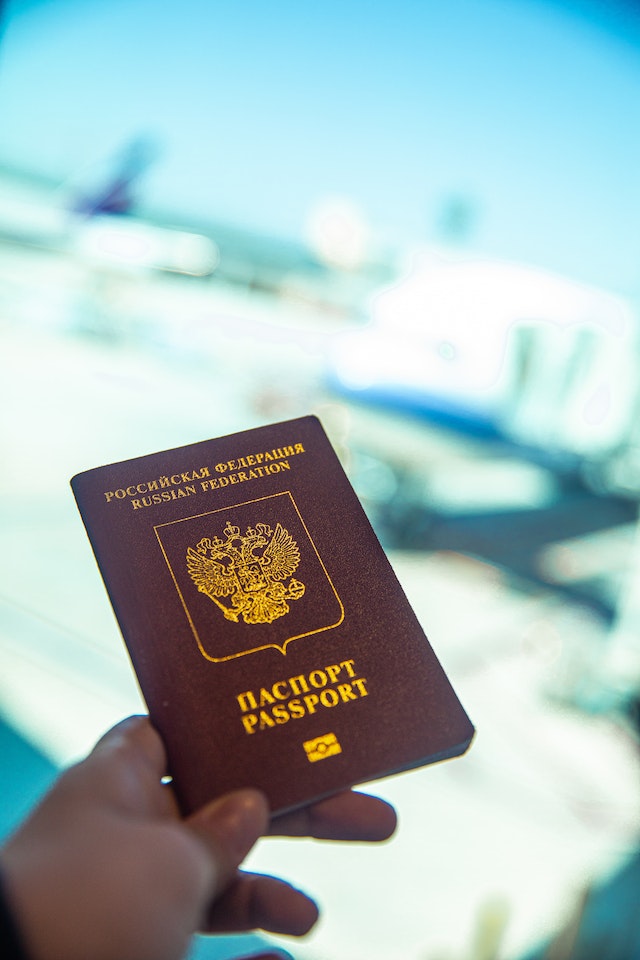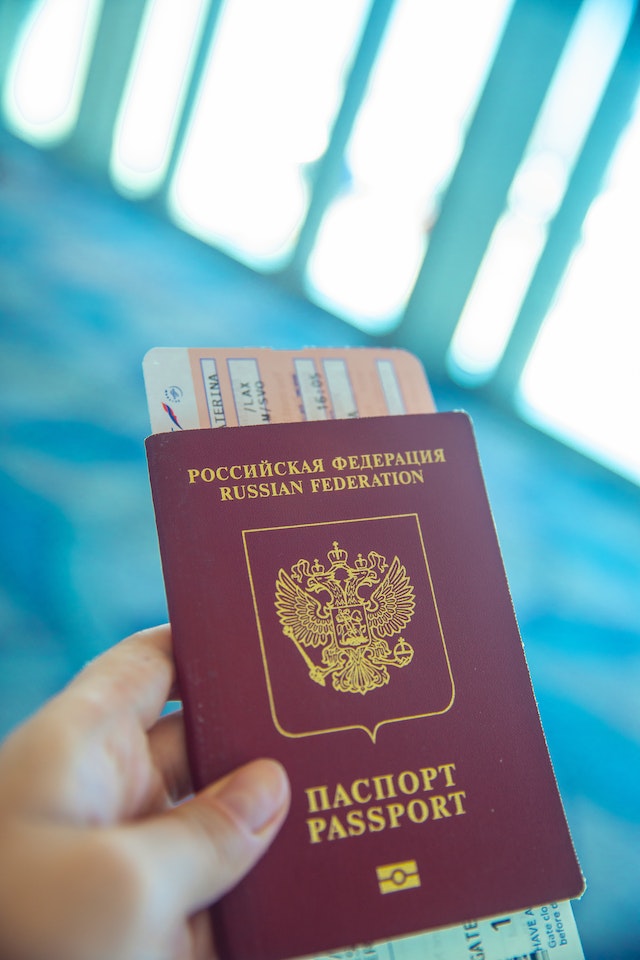Can a Felon Get a Passport? Understanding the Restrictions and Requirements
It is a common question among convicted felons whether they are eligible for a passport. The answer is not straightforward and depends on several factors, including the nature of the crime, the sentence, and the individual’s current legal status. In this article, we will explore the topic of felons and passports, including eligibility requirements, restrictions, and ways to overcome ineligibility.
Understanding the Basics
The United States Department of State issues passports to U.S. citizens for international travel. The passport serves as a form of identification and allows the holder to enter and exit foreign countries. To obtain a passport, an individual must complete the application process and meet the eligibility requirements. However, not everyone is eligible for a passport, and certain criminal convictions can disqualify an individual from obtaining one.
The Passport Application Process
The passport application process is relatively straightforward, and most U.S. citizens can apply for a passport by following the standard procedures. However, those with felony convictions may face additional challenges and restrictions. It is essential to understand the application process and eligibility requirements before applying for a passport as a convicted felon.

Understanding the Basics
What is a Felon
A felon is a person who has been convicted of a serious crime, such as murder, rape, or robbery. Felonies are considered more severe than misdemeanors and can result in imprisonment for more than a year. Individuals who have been convicted of a felony may face limitations on their rights, including the right to vote, own firearms, and hold certain jobs.
What is a Passport
A passport is an official government document that verifies a person’s identity and citizenship. It is required for international travel and serves as proof of identity when entering or leaving a country. Passports are issued by the government of the country of citizenship and contain personal information, including the holder’s name, date of birth, and photograph.
In the United States, the Department of State issues passports. There are two types of U.S. passports: a traditional passport book and a passport card. The traditional passport book is valid for international travel by air, sea, or land, while the passport card is only valid for land and sea travel to and from Canada, Mexico, the Caribbean, and Bermuda.
Can a Felon Get a Passport
Generally, felons are not automatically disqualified from obtaining a passport. However, there are certain circumstances where a felon may be denied a passport. For example, if a felon is on parole, probation, or serving a sentence, they may not be able to obtain a passport until their sentence is complete.
Additionally, if a felon owes more than $2,500 in child support, they may be denied a passport. This is because the Passport Denial Program requires the Department of State to deny passport applications to individuals who owe a significant amount of child support.
It is important to note that a passport is a form of identification and felons may be required to provide additional documentation to prove their identity. This may include a government-issued ID, such as a driver’s license or state ID, or other documentation, such as a birth certificate or social security card.
Overall, while felons may face certain limitations on their rights, obtaining a passport is not necessarily one of them. As long as they meet the requirements and provide the necessary documentation, they can apply for and obtain a passport like any other U.S. citizen.
The Passport Application Process
When it comes to applying for a passport, the process is the same for everyone, regardless of their criminal history. However, there are certain requirements that must be met, and it’s important for felons to be aware of these before beginning the application process.
Form DS-11
The first step in applying for a passport is to fill out Form DS-11, which is available online or at passport acceptance facilities. This form requires personal information such as name, date of birth, and social security number, as well as information about the applicant’s previous passports and travel plans.
Passport Photo
In addition to the application form, applicants must also provide a passport photo. This photo must meet certain requirements, such as being in color, taken within the last six months, and showing a clear image of the applicant’s face. Passport photos can be taken at many locations, including drugstores and post offices.
Passport Agency
Once the application form and photo have been completed, the next step is to submit them to a passport agency or acceptance facility. These facilities are located throughout the country and are authorized to accept passport applications. It’s important to note that not all facilities offer the same services, so it’s important to check with the facility beforehand to ensure they can meet your needs.
Overall, the passport application process is straightforward and can be completed by anyone, including felons. However, it’s important to ensure that all requirements are met and that the necessary documents and identification are provided. By following these steps, felons can obtain a passport and enjoy the benefits of international travel.

Felony Convictions and Passport Eligibility
Individuals who have been convicted of a felony may face restrictions when it comes to obtaining a passport. The U.S. Department of State is responsible for issuing passports, and they have strict guidelines that must be followed.
Felony Convictions
A felony conviction can result in the denial of a passport application. This is especially true if the crime involved drug trafficking or a sex offense. In general, the Department of State will deny passport applications for individuals who are currently under indictment or have an outstanding warrant for a felony offense.
International Drug Trafficking
Individuals who have been convicted of international drug trafficking may be denied a passport. The Department of State takes drug trafficking very seriously, and they do not want to issue passports to individuals who may use them to engage in further criminal activity.
Unpaid Federal Taxes
Individuals who owe more than $51,000 in unpaid federal taxes may be denied a passport. This is due to a law passed in 2015 called the Fixing America’s Surface Transportation (FAST) Act. The law allows the Department of State to deny passport applications for individuals who owe a significant amount of money in taxes.
Unpaid Child Support
Individuals who owe more than $2,500 in unpaid child support may be denied a passport. The Department of State takes child support obligations very seriously, and they do not want to issue passports to individuals who are not meeting their financial obligations to their children.
Other Serious Crimes
Individuals who have been convicted of other serious crimes, such as kidnapping, child pornography, human trafficking, assault, cybercrime, or sexual assault, may also face passport restrictions. The Department of State will evaluate each case on an individual basis and make a determination based on the specific circumstances of the case.
In general, individuals who have been convicted of a felony should consult with an attorney before applying for a passport. An attorney can help determine if there are any restrictions that may apply and can help guide the individual through the application process.
Probation, Parole, and Passport Restrictions
Probation and Parole
Individuals who are on probation or parole are not automatically disqualified from obtaining a passport. However, their ability to obtain a passport may be restricted depending on the terms of their probation or parole.
Probation and parole officers may impose travel restrictions on their supervisees, which may include restrictions on international travel. In such cases, individuals may be required to obtain permission from their probation or parole officer before leaving the country.
Court Orders and Restrictions
Individuals who are subject to court orders or restrictions may also face limitations on their ability to obtain a passport. For example, a court may order that an individual surrender their passport as a condition of bail or probation. In such cases, the individual will not be able to obtain a new passport until the court order is lifted.
Similarly, individuals who are subject to a parole order or supervised release may be required to obtain permission from their parole officer before obtaining a passport. Failure to obtain permission may result in a violation of their parole or supervised release conditions.
It is important to note that the ability to obtain a passport may vary depending on the specific circumstances of the individual’s case. It is recommended that individuals consult with an attorney or their probation/parole officer for guidance on their specific situation.
Overcoming Passport Ineligibility
Individuals with a felony conviction may face challenges in obtaining a passport. However, there are ways to overcome passport ineligibility. This section will discuss three options: rehabilitation, pardon, and waiver.
Rehabilitation
Rehabilitation is a process that involves demonstrating that the individual has been rehabilitated and is no longer a threat to society. This can be done by completing a drug or alcohol treatment program, participating in community service, and maintaining a clean criminal record for a certain period of time.
If an individual can demonstrate rehabilitation, they may be eligible for a passport. However, the decision ultimately lies with the Department of State.
Pardon
A pardon is an official forgiveness of a crime. If an individual receives a pardon, their criminal record is cleared and they are considered rehabilitated. This means they may be eligible for a passport.
The process of obtaining a pardon varies by state. In some states, the governor has the power to grant a pardon, while in others, a pardon board or commission makes the decision. It is important to research the specific requirements and procedures in the state where the individual was convicted.
Waiver
If an individual is ineligible for a passport due to a felony conviction, they may be able to obtain a waiver. A waiver is a document that allows the individual to travel internationally despite their ineligibility for a passport.
To obtain a waiver, the individual must demonstrate that they have a compelling reason for travel, such as a medical emergency or a job opportunity. The decision to grant a waiver is made on a case-by-case basis by the Department of State.
In conclusion, while a felony conviction can make it difficult to obtain a passport, there are options available. Rehabilitation, pardon, and waiver are all potential paths to overcoming passport ineligibility. It is important to research the specific requirements and procedures for each option and to seek legal advice if necessary.

Travel Abroad as a Convicted Felon
Traveling abroad as a convicted felon can be a challenging experience. It is essential to understand the laws and regulations of the country you plan to visit to avoid any legal issues. In this section, we will discuss the travel restrictions for felons and the requirements for traveling to Canada, Australia, and the UK.
Travel to Canada
Canada has strict laws regarding felons’ entry into the country. If you have a criminal record, you may be deemed inadmissible to Canada, and your entry may be denied. However, some felons may be eligible to enter Canada if they meet certain requirements, such as obtaining a Temporary Resident Permit (TRP) or Rehabilitation.
Travel to Australia
Australia also has stringent laws regarding felons’ entry into the country. If you have a criminal record, you may be denied entry into Australia. However, some felons may be eligible for a visa if they meet certain requirements, such as obtaining a Character Requirement Waiver or a Special Purpose Visa.
Travel to the UK
The UK has strict laws regarding felons’ entry into the country. If you have a criminal record, you may be denied entry into the UK. However, some felons may be eligible for a visa if they meet certain requirements, such as obtaining a Rehabilitation Certificate or a Temporary Admission Permit.
Visa Requirements
It is essential to understand the visa requirements for the country you plan to visit. Some countries may require a visa for felons, while others may not. It is crucial to research the visa requirements and application process well in advance of your trip to avoid any potential issues.
In conclusion, traveling abroad as a convicted felon can be a complex process. It is essential to research the laws and regulations of the country you plan to visit and understand the visa requirements to avoid any legal issues.
Legal Advice and Assistance
Individuals with a criminal record may face challenges when applying for a passport. While there is no law that prohibits a felon from obtaining a passport, certain circumstances may lead to a denial of the application. It is important to seek legal advice and assistance to understand the potential hurdles and how to overcome them.
An experienced attorney can provide guidance on the eligibility requirements and help navigate the application process. They can also advise on any legal issues that may arise, such as outstanding warrants or probation violations. A lawyer can also help with the restoration of civil rights, which may improve the chances of obtaining a passport.
Legal advice can also be obtained from non-profit organizations that specialize in helping individuals with criminal records. These organizations may provide free or low-cost legal services and can help with the preparation of the passport application.
It is important to note that legal advice and assistance can be crucial in ensuring a successful passport application. By seeking the help of an attorney or non-profit organization, individuals with criminal records can increase their chances of obtaining a passport and avoid potential legal issues.
Frequently Asked Questions
What countries can convicted felons travel to?
Travel restrictions for convicted felons vary depending on the country. Some countries have no restrictions while others have strict requirements for entry. It is recommended that felons check with the embassy of the country they plan to visit for specific travel requirements.
Can a felon get a passport in Florida?
Yes, felons can apply for a passport in Florida. However, their application may be denied if they are currently in prison, on parole, or on probation. Additionally, if the felony conviction is related to drug trafficking or a sex crime involving a minor, the passport application may be denied.
What disqualifies you from getting a passport?
Felony convictions related to drug trafficking or sex crimes involving minors may disqualify an individual from getting a passport. Additionally, if an individual owes more than $2,500 in child support payments, their passport application may be denied.
Can a felon go on a cruise?
Cruise lines have their own policies regarding felons on board. Some cruise lines allow felons to travel while others do not. It is recommended that felons check with the specific cruise line they plan to travel with for their policy on felons.
What countries will not allow felons?
Some countries have strict entry requirements for felons and may deny entry altogether. These countries include Canada, China, and the United Arab Emirates. It is recommended that felons check with the embassy of the country they plan to visit for specific entry requirements.
Can felons travel internationally?
Felons can travel internationally as long as they meet the entry requirements of the country they plan to visit. It is recommended that felons check with the embassy of the country they plan to visit for specific travel requirements.


